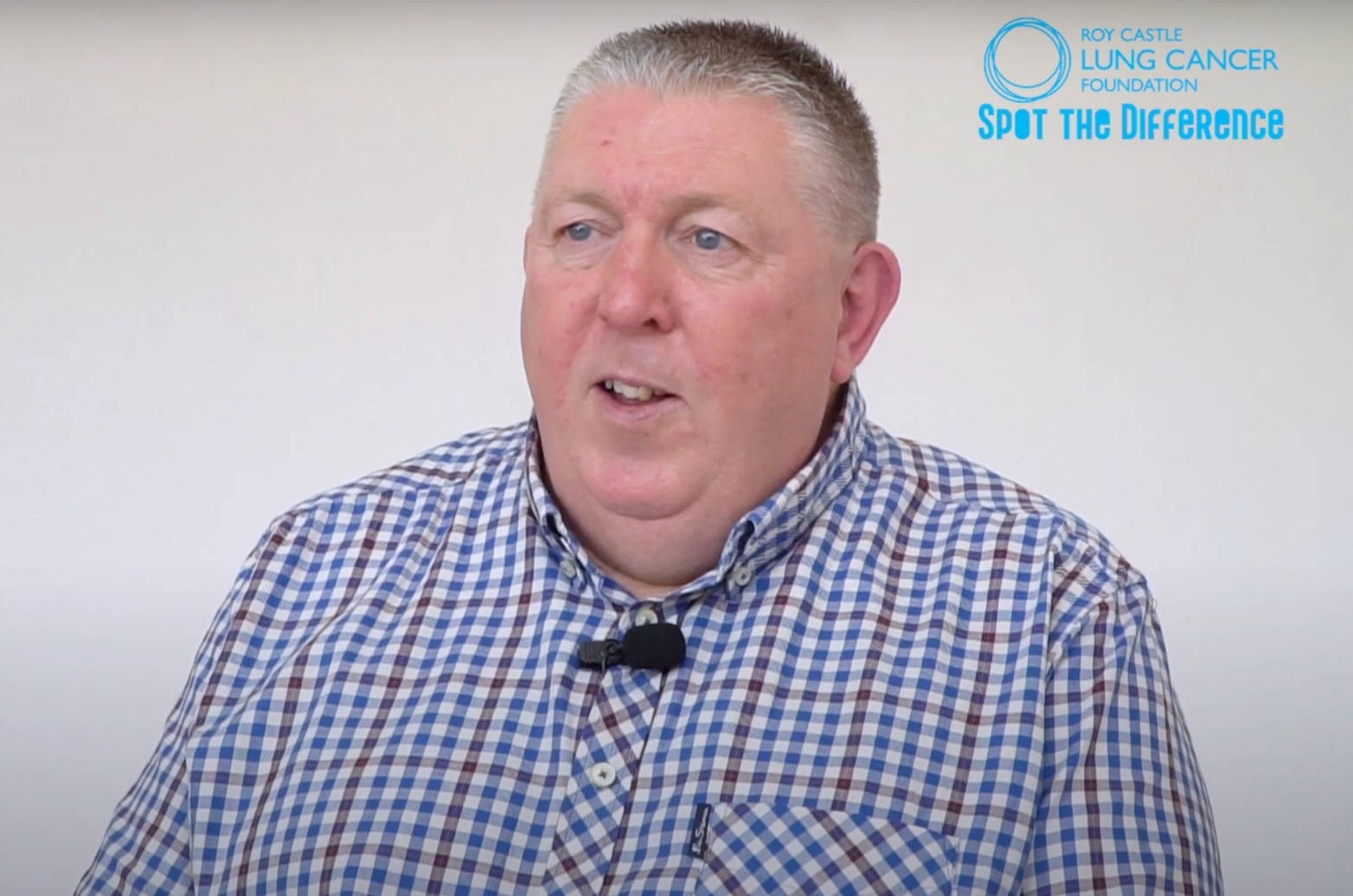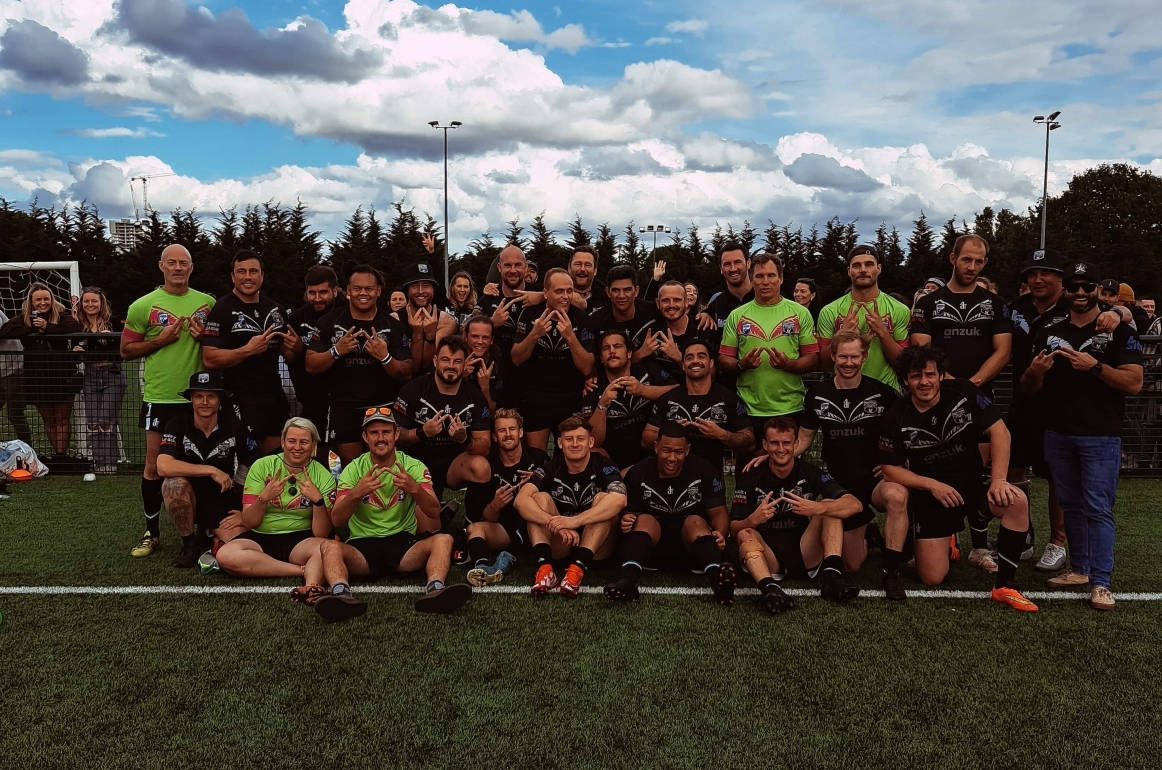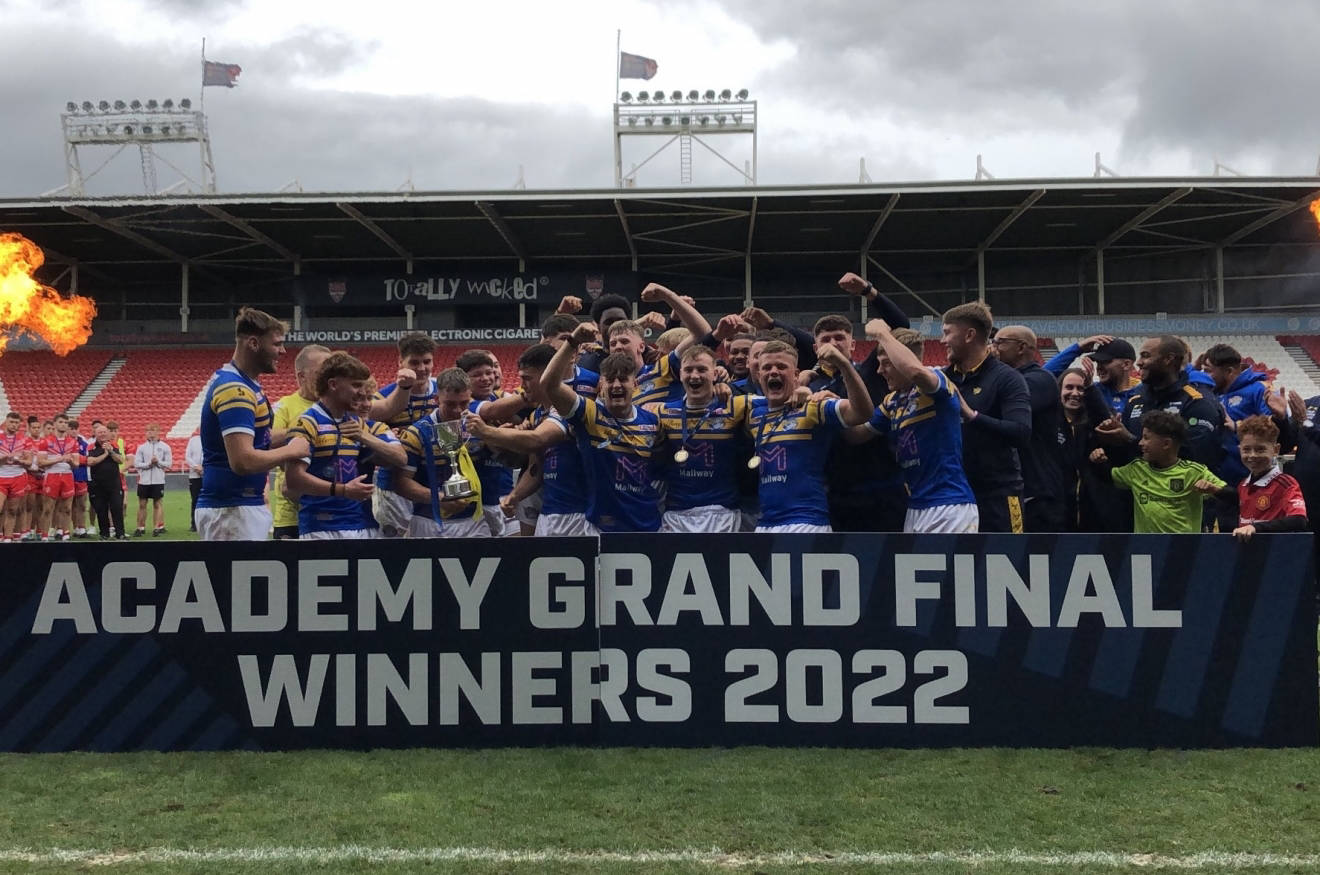3 Nov 2021
Rugby League coach Richard Tunningley urges all to Spot the Difference and save lives

Richard Tunningley, the RFL’s popular and respected Coach Education Manager, is urging Rugby League fans to be vigilant for any signs of possible lung cancer, as part of a national campaign by the Roy Castle Lung Cancer Foundation.
Richard has been diagnosed with stage 4 lung cancer. It is incurable, but he receives treatment that currently enables him to continue to enjoy a life and a career which has seen him involved in Rugby League at every level of the game.
Originally an engineer by trade and a former amateur player at Kellingley Welfare and Knottingley, Richard spent many years in coaching, performance and youth development roles, both in the community game at Knottingley and Lock Lane, and in the professional game at Featherstone Rovers, Wakefield Trinity, Castleford Tigers and Bradford Bulls. He previously served the RFL as midlands regional performance coach and England youth coach, before returning to the sport’s governing body to oversee coach education.
He is liked and respected by all who know him and work with him, and he had expected to enjoy many more years of being involved in the sport he has adored all his life. Now, he is sharing his story to help a national campaign by Roy Castle Lung Cancer Foundation aimed at preventing more people from finding themselves in his situation.
The Roy Castle Lung Cancer Foundation charity is urging us all to recognise small changes in our health that could spell big trouble. Their Spot the Difference campaign uses real-life patient case studies and short video clips to illustrate the subtle and gradual changes that might indicate lung cancer.
In Richard’s case, his route to diagnosis was severely delayed by the Covid-19 pandemic. It took eight months from his first noticing a persistent cough to having a CT scan.
A persistent cough, such as Richard’s, that lasts three weeks or more is one of the key symptoms of lung cancer.
Others include breathlessness, coughing up blood, hoarseness, fatigue, loss of appetite, back pain, and ‘clubbing’ of the end of the fingers.
However, many of these symptoms can also be associated with less serious ailments such as chest infections, making it more difficult for even experienced healthcare professionals to identify potential lung cancers. This can cause delays to diagnosis and lead to poorer outcomes for patients.
In many cases, symptoms only become obvious when the disease has already spread. As a result, around 75% of people in the UK found to have lung cancer are diagnosed when their condition is already terminal.
The sooner the disease is detected, the greater the range of treatment options are available, including some with curative intent. Sadly, this was not an option in Richard’s case.
Richard said:
‘’I'm not angry about the time it took to get the diagnosis. The whole world was upside down and people were trying their best. It's just a fact of life that when I most needed to see my GP, it simply wasn't available. Things are different now, fortunately. So, I’d tell anyone with symptoms, such as a cough like I had, to see their GP. Make sure you stress to them the importance of being seen.
“If that cough isn’t going away, then there's a reason. It could be nothing, but on the other hand it could be something really serious. I'm a typical male; I wouldn't normally go and bother a doctor, but you need to go and get checked out. If you've got those symptoms, it's really important, make sure you take control and get yourself seen.â€
Lung cancer remains a deadly threat that can affect any of us, old or young, smoker or not, no matter what our background or culture.
Every year just under 49,000 people in the UK will learn they have the disease – and around 35,000 people will die of it.
For that reason, Roy Castle Lung Cancer Foundation is dedicated to ensuring more people can get diagnosed early, so they can have the best possible treatment options and the best outcomes.
Richard adds: ‘’I don’t want people to have to go through what I've gone through. It’s not just the individual person, it affects families so much. If, by telling my story, I can help someone get an early diagnosis and have treatment and a successful outcome, then I will have achieved something really worthwhile.’’
The charity’s chief executive, Paula Chadwick, says: “Sadly, Richard’s story shows why our Spot the Difference campaign is so important. Seemingly small things, such as a cough that doesn’t go away, or being a little more tired than usual, may be early signs of something much more significant happening within us.
“We urge everyone to take a moment to think about their health – have there been any subtle changes? Anything our friends or family have told us they’re concerned about? If so, don’t hesitate, go to see your GP and get it checked out. Most likely, it won’t be anything serious, but if it is, then by taking early action you could save your life.â€
You can learn more about the work of Roy Castle Lung Cancer Foundation, the only UK charity dedicated to supporting people with all forms of lung cancer, and the Spot The Difference campaign, by visiting roycastle.org.





